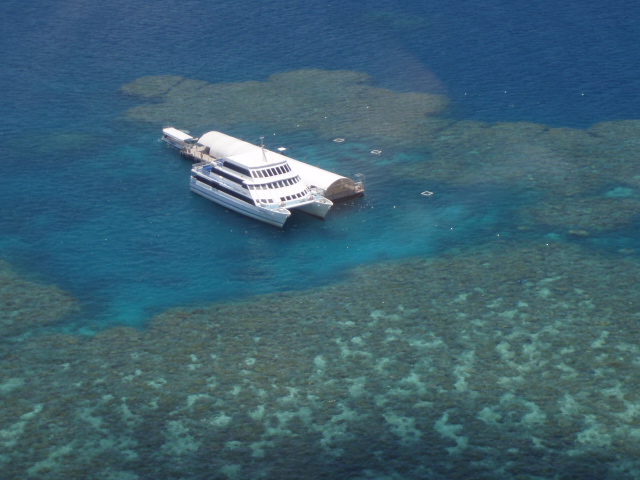
Healthy reef more important than fishing or shipping: residents and visitors
Published Monday 6 July 2015

The health of the Great Barrier Reef is more important to residents and tourists than its recreational or commercial uses, according to new research.
Surveys of 1,592 people living adjacent to the Great Barrier Reef indicated that ‘environmental nonuse’ values such as clean water, high biodiversity and low rubbish levels were more important to them than recreational or economic uses of the reef such as fishing and boating or cheap shipping.
Scientists and tourism industry figures alike say that these results show the value placed on the Great Barrier Reef’s health.
The surveys were carried out by researchers from James Cook University for the National Environmental Research Program (NERP)’s Tropical Ecosystems Hub and compiled by the Reef and Rainforest Research Centre, a Cairnsbased environmental nongovernment organisation that manages and directs environmental protection projects in the Great Barrier Reef, Wet Tropics Rainforest, Torres Strait and elsewhere.
The aim of the project was to help frame scientists’ understanding of how the Great Barrier Reef and the economies associated with it interact, to determine which economic variables were the most important to monitor, and how to interpret changes in those variables over time.
The outcomes of the project suggest that residents and tourists perceive the ‘productive’ immediate uses of the Great Barrier Reef to be less important than its longterm environmental health, and will likely be resistant to development projects that endanger that health.
Visitors to the region also felt that a healthy Great Barrier Reef was more important to them than cheap ticket prices.
A survey of 2,743 reef tourists showed that clear water, healthy reef fish and no visible rubbish were more important reasons for visiting the region than the affordability of tourism activities.
In fact, visitors were, on average, willing to pay an extra $14.50 each to help improve water quality in the GBR lagoon (although this figure did vary widely from person to person) and that a 10% decrease in reef water visibility could translate to a $430,000 loss in tourist revenues across the Great Barrier Reef catchment every year.
Further degradation of the health of the reef could result in even greater impacts on the tourism industry, and flowon problems to nontourism related industries in Far North Queensland.
The age, gender, occupation and education levels of people surveyed affected their attitudes toward reef health.
For example, older, more educated females placed a higher value on environmental nonuse values and a lower value on recreational uses such as fishing and boating than younger, less educated males employed in the mining sector.
This latter demographic represents the fastest growing group of residents living adjacent to the reef, so future average attitudes toward reef health health could change.
Project leader Prof Natalie Stoeckl from James Cook University said the results of the project were a ‘no brainer’.
“Residents clearly recognise that if the reef is not healthy, they cannot use it for recreation and commercial purposes let alone for anything else,” Prof Stoeckl said.
“Our results show that by protecting the reef, we are protecting important industries (tourism and commercial fisheries); and that we are protecting a lifestyle which so many residents have clearly come to know and love.”
RRRC managing director Sheriden Morris said the project showed how much everyone cared about the Reef.
‘This work highlights how important the Reef is to the local community and reinforces why we shouldn’t simply take the future health of the Reef for granted,” Sheriden said.
Tourism Tropical North Queensland Chief Executive Officer Alex de Waal said the health of the Great Barrier Reef was of paramount importance to the region’s economy.
“The Great Barrier Reef is a drawcard for visitors to Tropical North Queensland and our visitor economy provides 18.8 per cent of the employment in the region,” he said.
“This means the health of the Great Barrier Reef is important to many jobs in Tropical North Queensland.
“Our Great Barrier Reef operators go above and beyond what is required to protect the World Heritage environment they work in, such as employing marine biologists to monitor the health of the reef and participating in voluntary conservation and research programs.
“What is especially gratifying is that many of the visitors our operators share the Great Barrier Reef with are keen to know about this stewardship and help wherever possible.”